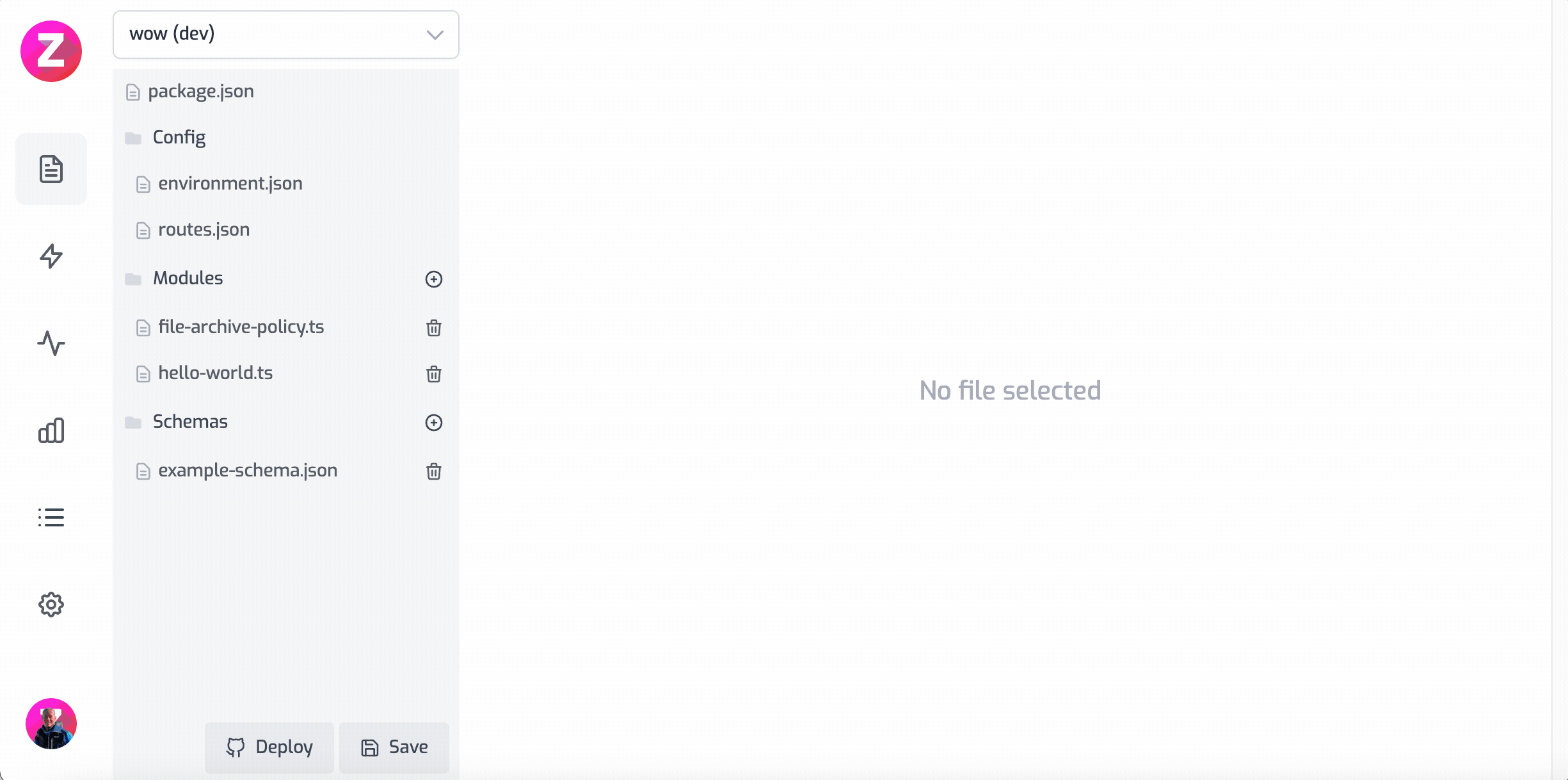How to Guides
Archiving requests to storage
Note - this sample uses Policies, read this guide first.
In this sample, we'll show how you can archive the text body of incoming requests to Azure Blob Storage. We also have a post on Archiving to AWS S3 Storage.
First, let's set up Azure. You'll need a container in Azure storage
(docs).
Once you have your container you'll need the URL - you can get it on the
properties tab of your container as shown below.
Note - this sample is available as a Zup It on GitHub - just click ZupIt! to deploy to your Zuplo account: https://github.com/zuplo/samples-req-archive-filestorage

This URL will be the blobPath in our policy options.
Next, we'll need a SAS (Shared Access Secret) to authenticate with Azure. You
can generate one of these on the Shared access tokens tab.
Note, you should minimize the permissions - and select only the Create
permission. Choose a sensible start and expiration time for your token. Note, we
do not recommend restricting IP addresses because Zuplo runs at the edge in over
200 data-centers world-wide.

Then generate your SAS token - copy the token (not the URL) to the clipboard and
enter it into a new environment variable in your zup called BLOB_CREATE_SAS.
You'll need another environment variable called BLOB_CONTAINER_PATH.

Note - production customers should talk to a Zuplo representative to get help managing their secure keys.
We'll write a policy called request-archive-policy that can be used on all
routes.
import { ZuploRequest, ZuploContext } from "@zuplo/runtime"; export type RequestArchivePolicyOptions = { blobContainerPath: string; blobCreateSas: string; }; export default async function ( request: ZuploRequest, context: ZuploContext, options: RequestArchivePolicyOptions, ) { // because we will read the body, we need to // create a clone of this request first, otherwise // there may be two attempts to read the body // causing a runtime error const clone = request.clone(); const body = await clone.text(); // let's generate a unique blob name based on the date and requestId const blobName = `${Date.now()}-${request.requestId}.req.txt`; const url = `${options.blobContainerPath}/${blobName}?${options.blobCreateSas}`; const result = await fetch(url, { method: "PUT", body: body, headers: { "x-ms-blob-type": "BlockBlob", }, }); if (result.status > 201) { const err = { message: `Error archiving file`, status: result.status, body: await result.text(), }; request.logger.error(err); } // continue return request; }
Finally, you need to configure your policies.json file to include the policy, example below:
{ "name": "request-archive-policy", "policyType": "code-policy", "handler": { "export": "default", "module": "$import(./modules/archive-request-policy)", "options": { "blobCreateSas": "$env(BLOB_CREATE_SAS)", "blobContainerPath": "$env(BLOB_CONTAINER_PATH)" } } }
Don't forget to reference the file-archive-policy in the policies.inbound
property of your routes.
Here's the policy in action:
